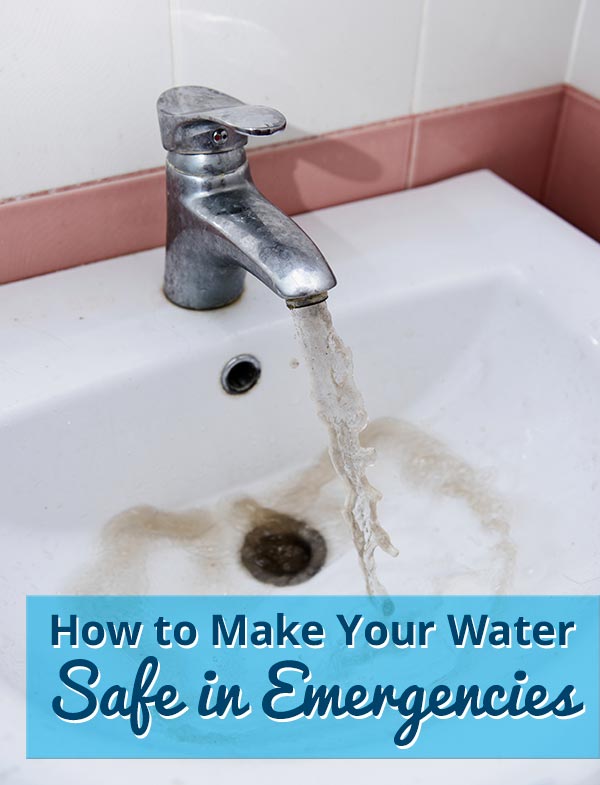 The Upstate has experienced boil water advisories before, and it could happen again. Just in case it does, we wanted to share a guide on all the ways to make your water safe to drink when it's not.
The Upstate has experienced boil water advisories before, and it could happen again. Just in case it does, we wanted to share a guide on all the ways to make your water safe to drink when it's not.
There's always a chance that something out of your control can affect the quality of your water — floods, hurricanes, earthquakes, and broken pipes can all render your water undrinkable. In these situations, it is important to listen to local officials, media outlets, and your water company for updates, instructions, and alerts that will keep you from coming into contact with severely tainted water.
If you are under a boil water advisory and the water in your area is declared unsafe, avoid drinking anything other than bottled water or water you have taken the steps to properly purify until it has been officially announced that the water in your area is safe to consume again. But how do you properly purify your water...
Purifying Tap Water in Emergencies
It's a smart idea to keep an emergency supply of fresh water, but you can usually make your tap water safe to drink by boiling, adding disinfectants, or filtering.
Note: There are certain situations in which boiling or disinfection will not help (water contaminated by toxic chemicals, gasoline, etc). It is in cases like these that an emergency supply of water is imperative.
Boiling Your Water
Boiling water is the most common water purification and sanitation method. Boiling makes water safe to ingest by killing living organisms (viruses, bacteria, parasites, etc.) that can make you and your family sick.
Boiling Clear Water
- Boil your water for 1 minute (higher elevations should boil for about 3 minutes)
- Let your water cool, then store it in a clean container which can be tightly sealed
Boiling Cloudy Water
- Filter your water (you can use a clean cloth, a paper towel, or a coffee filter) or allow the debris to settle to the bottom and remove the clear water
- Boil your water for 1 minute (higher elevations should boil for about 3 minutes)
- Let your water cool, then store it in a clean container which can be tightly sealed
Does your water not taste quite right after boiling? Try pouring it back and forth between 2 containers a few times, then let it "breathe" for a couple of hours. You can also try adding a pinch of salt (one for each quart or liter you boiled).
Sanitizing Your Water with Disinfectants
Unable to boil your water? In these cases you can use a disinfectant (household chlorine bleach, iodine, etc.) to make your water safe again.
Much like boiling, disinfectants kill harmful organisms but can be ineffective against parasites like Cryptosporidium and Giardia.
Disinfecting Your Water
- Filter your water (you can use a clean cloth, a paper towel, or a coffee filter) or allow the debris to settle to the bottom and remove the clear water
- Bleach:
- Add 1/8 tsp of unscented liquid chlorine bleach for each gallon of clear water and stir the mixture completely
- Let it stand for a minimum of 30 minutes before drinking
- Store it in a clean container which can be tightly sealed
- Iodine: the processes and measurements may vary, so follow your manufacturer's instructions
- Chlorine dioxide tablets: If the instructions are properly followed, chlorine dioxide tablets can remove remaining pathogens (including Cryptosporidium)
Filters
Unlike disinfectants, some filters (those with small enough pore sizes) are able to remove parasites from water. Every filter on the market is going to be different, so be sure to read and carefully follow the manufacturer's instructions.
Note: Most portable water filters are unable to remove viruses, so never rely on filtering as your only method of water purification.


.png)